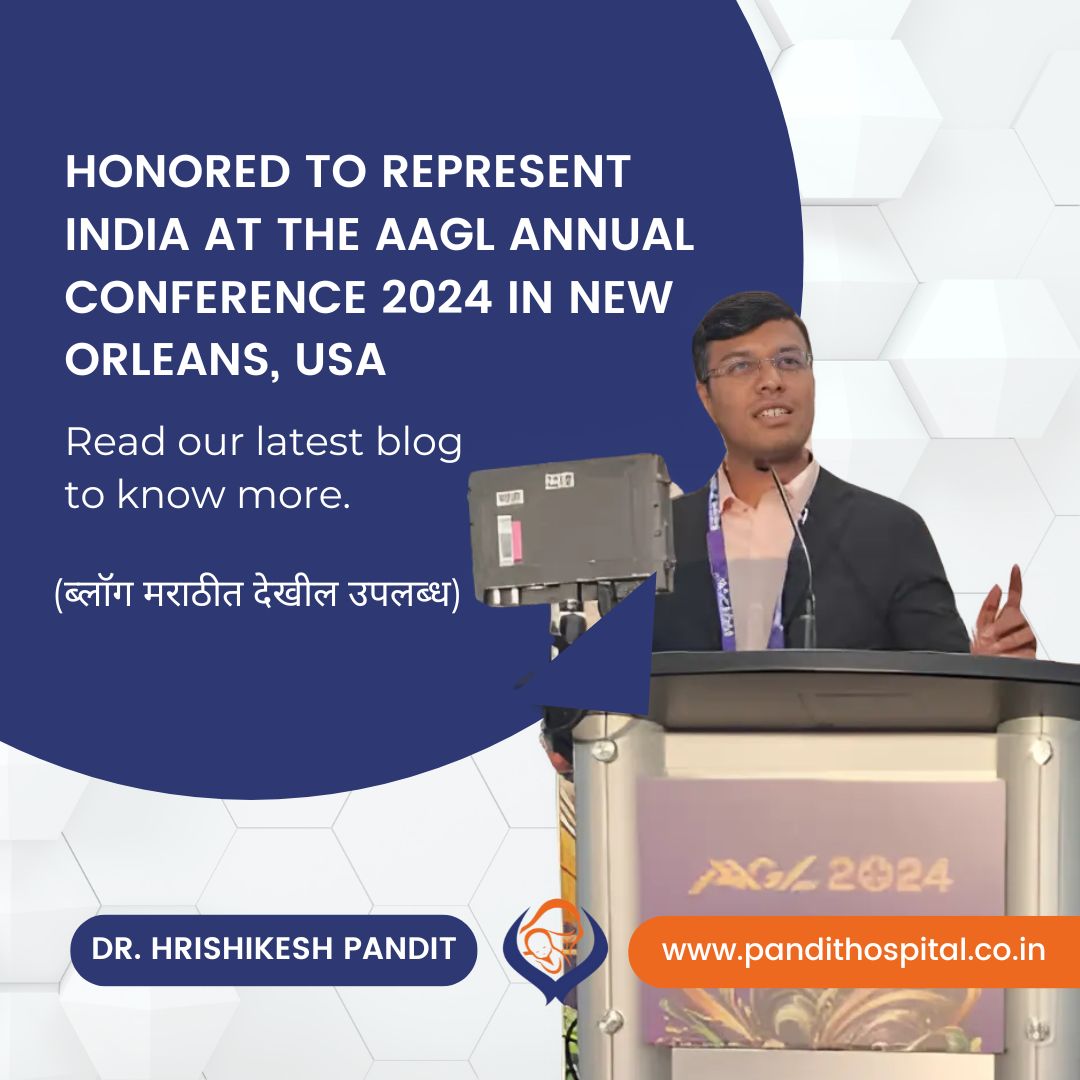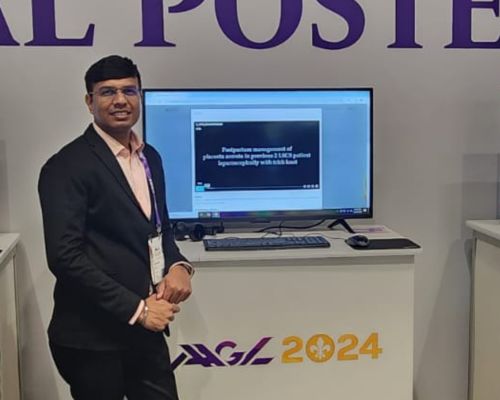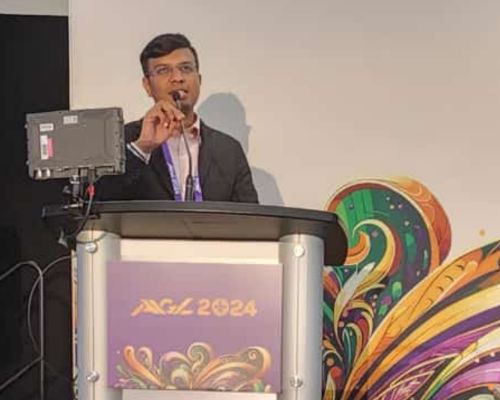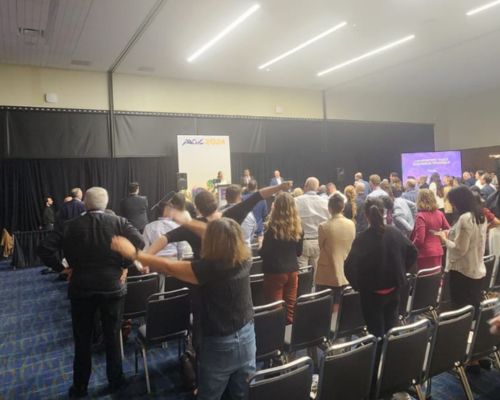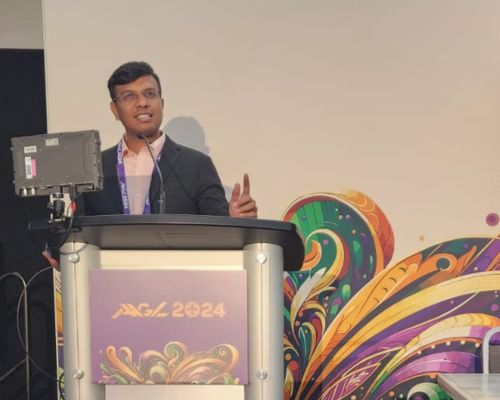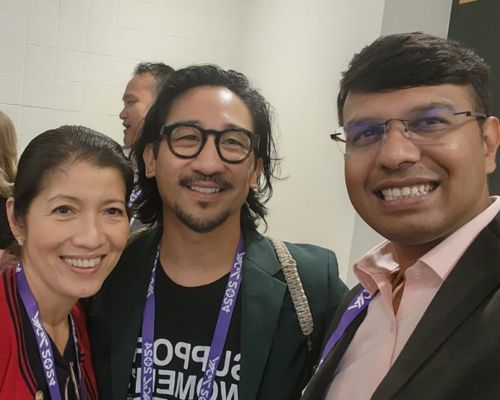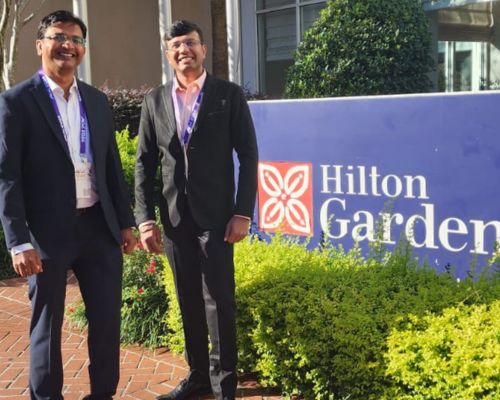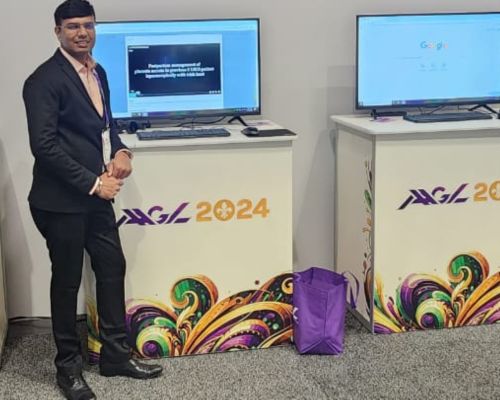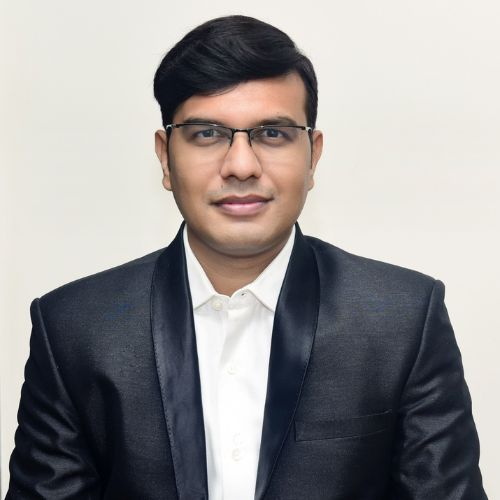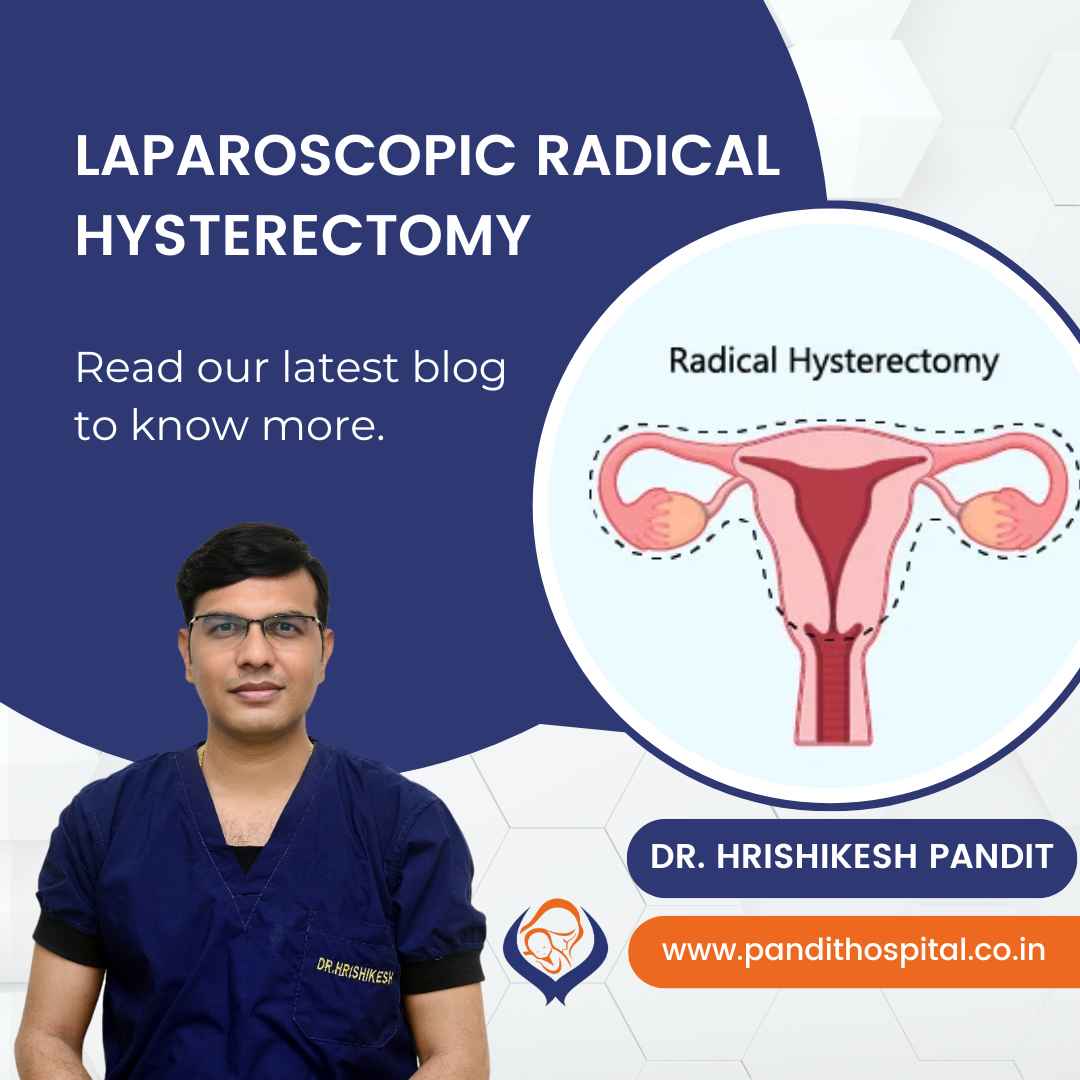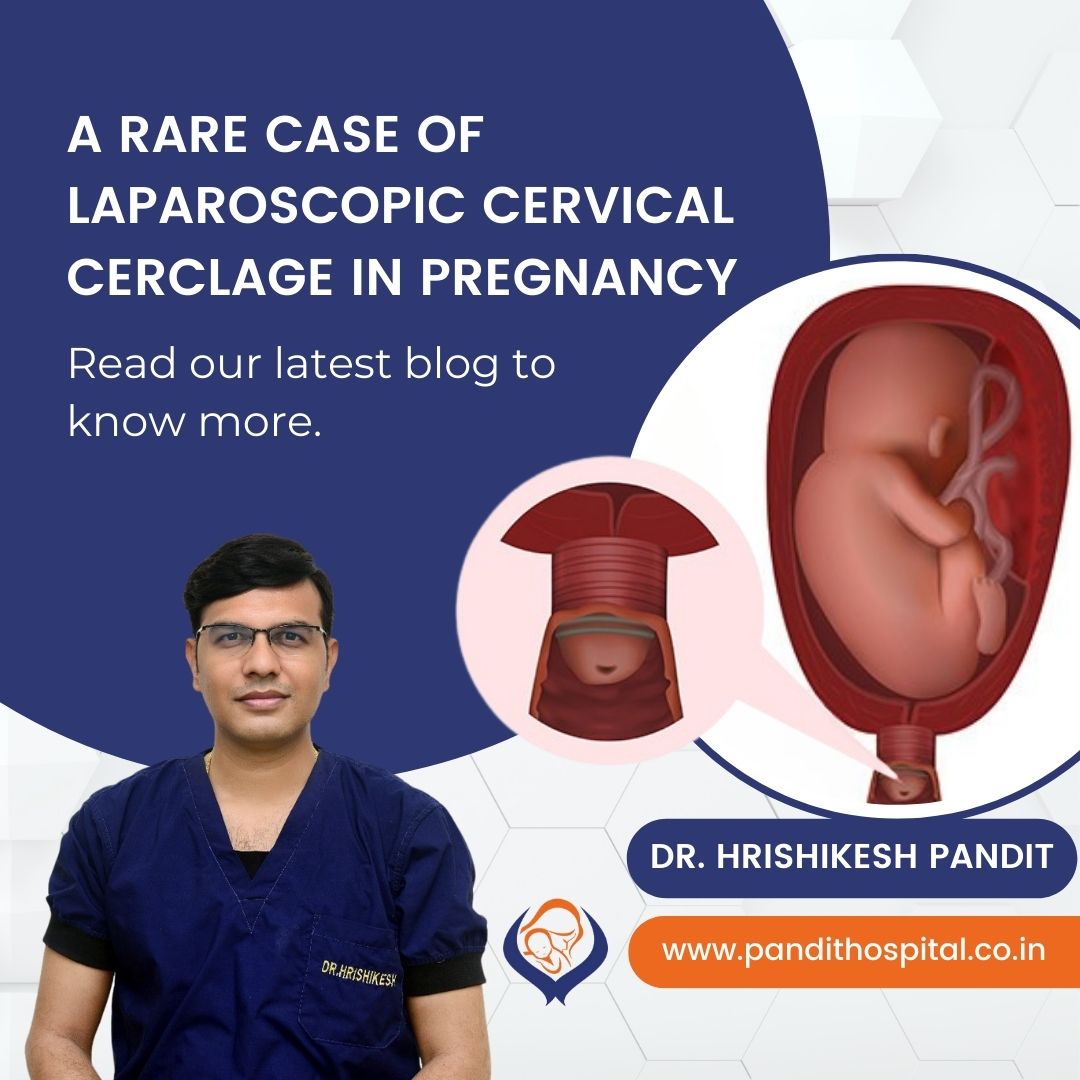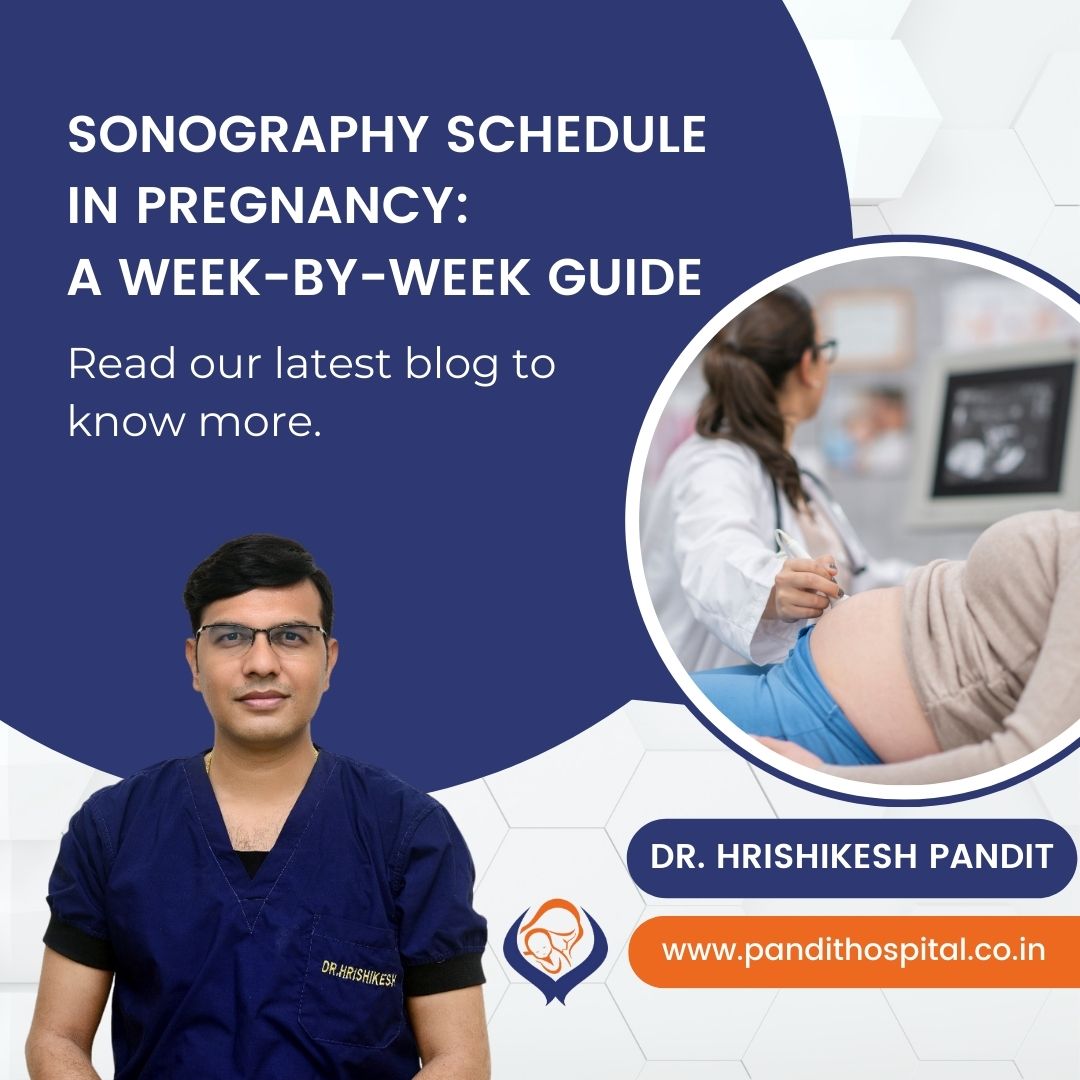The AAGL Annual Conference, held in New Orleans, Louisiana, from 16th to 19th November 2024, brought together the world’s leading gynecologic laparoscopic surgeons. This prestigious platform serves as a melting pot for innovation, knowledge sharing, and collaboration in minimally invasive gynecologic surgery. Representing India on this global stage was not only an honor but also a deeply rewarding experience.
Read this blog in Marathi
Out of 12,000 abstract submissions from across the globe, only 30 videos were selected for live on-stage presentations, making the event a showcase of the best and most innovative surgical techniques in the world. I am incredibly proud to have presented two groundbreaking surgical cases, demonstrating India’s strides in advanced laparoscopic surgery.
This case highlighted a rare and complex congenital condition where the patient presented with cervico-vaginal agenesis and a hemi-uterus, along with a pelvic kidney. The intricacies of managing such a condition required meticulous planning and a two-step laparoscopic approach, which I was privileged to share with the global surgical community.
Significance: The management of such conditions requires advanced skills and an in-depth understanding of both gynecologic and urologic anatomy.
Innovation: This approach showcased the power of minimally invasive surgery to improve patient outcomes, even in the most complex congenital anomalies.
Placenta accreta spectrum (PAS) is a life-threatening obstetric condition involving abnormal placental adherence. My presentation demonstrated the use of a trick knot technique in laparoscopic management, an innovation that combines surgical precision with safety.
Significance: PAS management is challenging, often requiring multi-disciplinary expertise and precise surgical strategies to prevent complications like hemorrhage.
Impact: The trick knot technique exemplifies how ingenuity in laparoscopic methods can revolutionize the treatment of high-risk obstetric conditions.
Standing among renowned laparoscopic surgeons from around the world, I felt immense pride in showcasing India’s expertise in gynecologic laparoscopy. These cases not only highlight the advancements we are making but also reflect the dedication of our surgical community to push the boundaries of what is possible in minimally invasive surgery.
The AAGL Conference is a hub for exchanging ideas, learning from peers, and inspiring the next generation of surgeons. It was an enriching experience to connect with colleagues from diverse backgrounds, exchange insights, and collectively work toward advancing gynecologic healthcare worldwide.
The inclusion of my work in this prestigious forum underscores the importance of innovation and skill in surgery. It also highlights the need to continue striving for better patient care through education, collaboration, and the adoption of cutting-edge techniques.
Minimally invasive surgery has a transformative impact on patients’ lives, offering faster recovery times, reduced complications, and better overall outcomes. Sharing these techniques on a global platform ensures that these benefits can reach patients far and wide.
This experience at the AAGL Annual Conference is a testament to the global recognition of Indian laparoscopic surgery. It motivates me to continue exploring new techniques, mentoring aspiring surgeons, and contributing to the field through research and collaboration.
I am deeply grateful for the opportunity to represent my country and share my work with the world. Together, as a global community, we can pave the way for better healthcare outcomes and inspire future innovations in gynecologic surgery.
Thank you to everyone who supported me on this journey — this milestone is as much yours as it is mine. Here’s to pushing boundaries and redefining possibilities in surgery!
At Pandit Hospital, you are in safe hands!
To consult Dr. Hrishikesh Pandit, Click Below,
• Cervico-vaginal Agenesis Management in Hemi-Uterus with Pelvic Kidney
Pandit Hospital – Best Maternity care center in Ahmednagar
LET’S SEE OUR INTRO VIDEO
At Pandit Hospital, we provide all the maternity services from antenatal to postnatal period under one roof
Let's Connect!!
0241-2441717 / 0241-2442344
info.pandithospital@gmail.com
About author:
Dr. Hrishikesh Pandit:
Dr. Hrishikesh Pandit is one of the best obstetrician and gynecologist in India. He is also a well-renowned Laparoscopic surgeon. He obtained his MS (Ob Gyn) degree from the prestigious Pravara Institute of Medical Sciences. He has also done fellowship and diploma courses in laparoscopic surgeries and cancer treatment from Tata Hospital and Keil University, Germany. His surgical cases, papers and videos has been chosen in many international forums of gynecology.
At Pandit Hospital, we are always working hard to provide its patients with the highest level of medical innovation and patient care. With the aim of delivering complete maternity & gynecological care under one roof with the help of all contemporary amenities and cutting-edge medical equipment. Dr. Hrishikesh Pandit has a vision to bring the best of facilities regarding laparoscopy surgeries in the city of Ahmednagar. He is the pioneer of 3D Laparoscopy technology is Ahmednagar.
Latest Articles
Dr. Hrishikesh Pandit is one of the best laparoscopy surgeons in India. His determination to bring 3D Laparoscopy technology to Ahmednagar has eventually helped so many patients. Read the latest articles by Dr. Hrishikesh Pandit on Gynecology, gastric issues, and health tips for mothers during pregnancy.
Dr. Hrishikesh Pandit answers common questions about Laparoscopic Radical Hysterectomy at Pandit Hospital’s 3D Laparoscopy Center.
Laparoscopic Cerclage is done for cervical insufficiency or early abortion history. Consult Dr. Hrishikesh Pandit to know more about it. Excellent results in High Risk Pregnancies. Watch video on YouTube.
At Pandit Hospital, Ahilyanagar, we provide advanced maternity care with state-of-the-art 3D laparoscopy and sonography services to ensure the safety of both mother and baby.
FAQ
You should consult a doctor during the first 6 to 8 weeks of your pregnancy, or when your period is 2 to 4 weeks late.
If your contractions are 5 minutes apart, lasting for 1 minute, for 1 hour or longer, it’s time to head to the hospital.
Doctors recommend an infertility evaluation if you have not gotten pregnant after 1 year of having regular sexual intercourse without using birth control. If you are older than 35, an evaluation is recommended after 6 months of trying.
Yes, You can. But most babies need 39 weeks to develop fully. Induced or planned delivery before that time—without a valid medical reason—is not in the best interest of the baby or the mother. After 39 weeks you can plan delivery.
Women who are 21 to 29 should have a Pap test alone every 3 years. HPV testing alone can be considered for women who are 25 to 29, but Pap tests are preferred. Women who are 30 to 65 have three options for testing. They can have a Pap test and an HPV test (co-testing) every 5 years. They can have a Pap test alone every 3 years. Or they can have HPV testing alone every 5 years.
Laparoscopic hysterectomy is a safe and suitable procedure for chosen patients. It affords patients advantages like less peri-operative morbidity, better life quality, shorter hospitalization time, and faster return to activity.
Schedule a doctor’s visit if you have: Greenish, yellowish, thick or cheesy vaginal discharge; Strong vaginal odor; Redness, itching, burning or irritation of your vagina or the area of skin that surrounds the vagina and urethra (vulva); Bleeding or spotting unrelated to your period.
Painless delivery can be achieved using a form of regional anesthesia that provides pain relief during natural labor. Epidural anesthesia is administered through an injection on the lower back of the mother. The drug takes about 10-15 minutes to take effect.
Even in severe cases of endometriosis, most can be treated with laparoscopic surgery. In laparoscopic surgery, your surgeon inserts a slender viewing instrument (laparoscope) through a small incision near your navel and inserts instruments to remove endometrial tissue through another small incision.
The HPV vaccine is recommended for routine vaccination at the age of 11 or 12 years. (Vaccination can be started at age 9.) It is also recommended that vaccination for everyone through age 26 years if not adequately vaccinated when younger. HPV vaccination is given as a series of either two or three doses, depending on age at initial vaccination.

